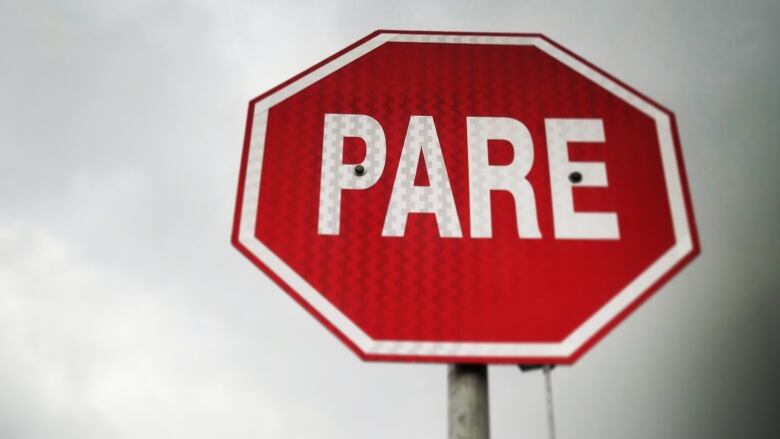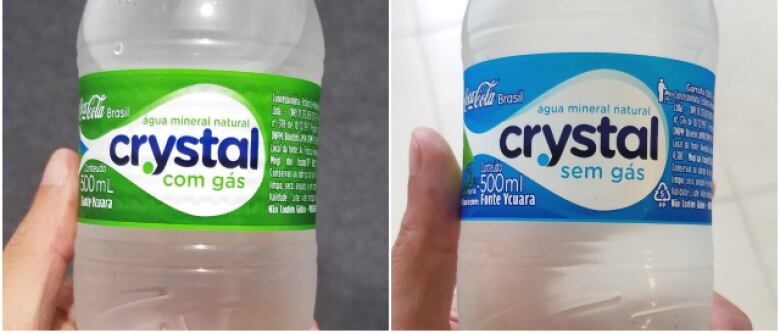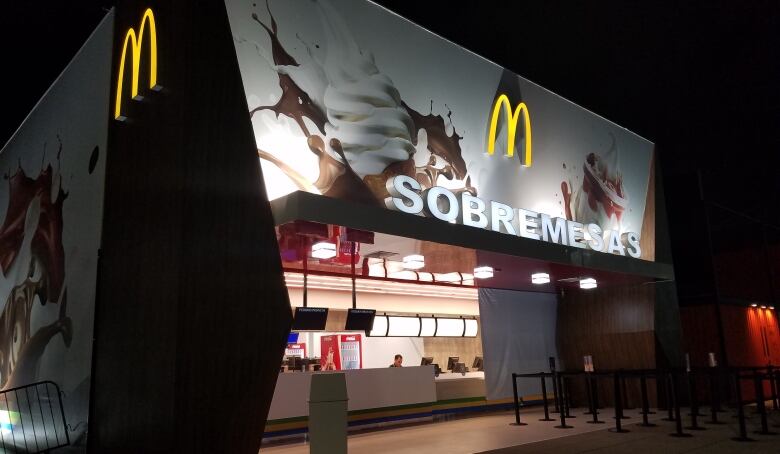Andrew Chang in Rio: Learning new languages at the Olympics
How Canadian astronaut Chris Hadfield's advice led Andrew Chang to learn Cyrillic

Sometimes, Portuguese is obvious.You come rolling up to a big, red octagon it doesn't really matter what's written inside of it.
But other times, it's a little less clear. Take something as simple as a bottle of water: which one's the regular water, and which one's sparkling?

As it happened, I chose wrong (which was really too bad, because I hate sparkling water). It was at that moment I remembered what happened to me twoyears earlier, just before heading to Sochi for the 2014 Olympic Games.
I had an opportunity to speak with Chris Hadfield, who had recently returned to Earth from his stint as commander of the International Space Station.
I told him I was going to Sochi, and he,having spent a lot of time in Russiatraining,gave me one piece of advice.
"Learn to read Cyrillic," he said."You'll be amazed how useful it is down there."
He didn't say much more about it than that and I remember thinking to myself, "Yeah, sure, I'll learn to read Cyrillic. And why stop there? Maybe I'll pick up a few dozen other languages while I'm at it."
Butat the same time,he's Chris Hadfield. When he tells you something,you listen.Sonot long after, on a five-hour train ride from Montreal to Toronto,I learned to read Cyrillic.
It's actually not that hard. Yes, there are some pretty funky-looking characters that don't resemble anything in the English alphabet. And there are 33letters in the Russian alphabet, compared to the 26 we all learned as kids(there are letters for 'ts' and 'ch' sounds, for example).
But that aside, when you don't really care about the meaning,just the pronunciation,learning the alphabet is child's play.Mind you, I still didn't know why or how any of this was going to be useful. But, as I said, he's Chris Hadfield.
Learning Cyrillic for Sochi
So on with my life I went, trusting in the advice and sure enough, almost immediately after touching down in Moscow itall became clear.
I was walking down the street. My stomach was grumbling. I was in a part of town where every building looks as non-descript as the next.I look up, and see "" written in giant letters on a big building.
I sounded it out: "rrrr...es...toh...rannn?" Restaurant?And sure enough, it was.
Going inside, reading a menu, one of the first items: ": ."Sounding it out: "koh-fehah-mair-ee-kan-o"
My gosh! That's Americano coffee!

Now unfortunately, I did no such preparation in Portuguese ahead of my trip to Rio(Chris Hadfield didn't mention anything about that).
So there were many instances of walking towards a big sign with "sada" written on it, and then suddenly wondering why I'm standing outside in an alleyway, when all I was trying to do was find the media centre.
But don't worry about me. As journalists go, we tend to learn quickly.
Ol (hello), obrigado (thank you), and jornalista (take a guess) have become staples of my child-like vocabulary.And yes, I now know to avoid signs with "sada" written on them, unless I'm actually looking for a way to exit the building.
Oh, and one more thing.If you're still thinking about the still vs. sparkling water photos above, this is all you have to remember:
'Com' means with.
'Sem' means without.












_(720p).jpg)


 OFFICIAL HD MUSIC VIDEO.jpg)
.jpg)



























































































